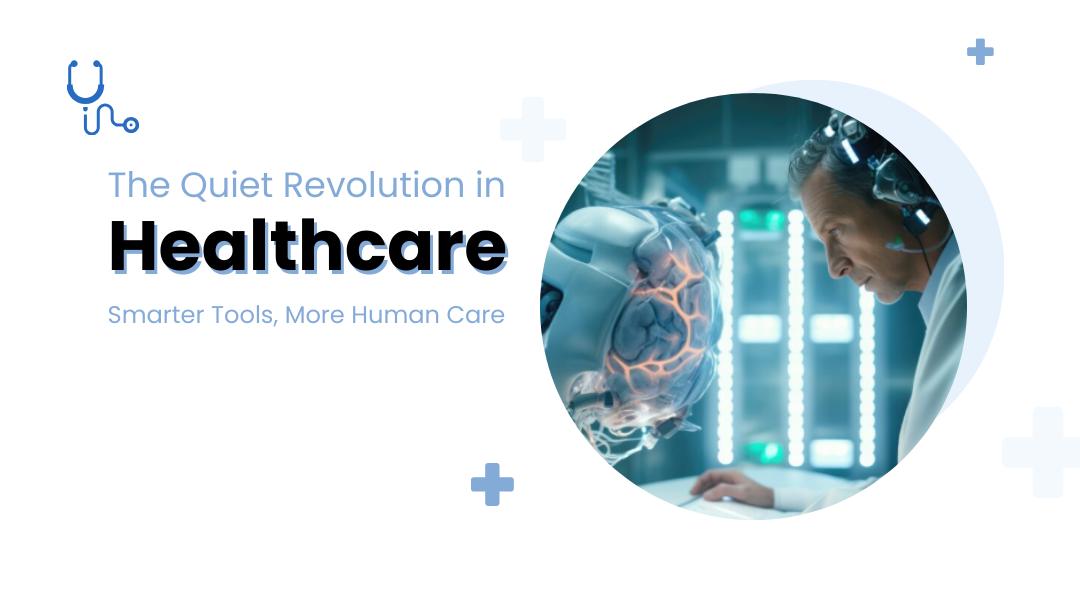We’re witnessing something extraordinary in medicine – a quiet revolution where cutting-edge technology doesn’t replace the human element, but actually makes healthcare more personal. Picture a world where your doctor knows you better because their insights are powered by real-time data, where prevention is so sophisticated that serious illness becomes rare rather than routine. This isn’t some distant future – it’s unfolding right now.
The Tech Trinity Changing Medicine
Three innovations are quietly rewriting the rules:
- AI That Actually Listens
- Not the clunky chatbots of yesteryear, but systems that track subtle changes in your voice during telehealth calls to detect anxiety or depression
- Hospital algorithms that now predict which patients need extra care after discharge by analyzing thousands of similar cases
- Wearables That Do More Than Count Steps
- Experimental patches that monitor blood chemistry through sweat, alerting diabetics before sugar levels crash
- Smart rings that detect early Parkinson’s tremors months before visible symptoms appear
- The Quiet Rise of Digital Medicine
- Prescription video games clinically proven to improve ADHD focus
- VR therapy that helps burn victims manage pain better than opioids
Real People, Real Changes
Take Maria, a 62-year-old in rural Montana. Her “smart pill bottle” noticed irregular blood pressure medication use. The system alerted her pharmacist, who set up a video consult. Together with her doctor, they discovered transportation issues and switched her to a 90-day mail-order supply. No hospital visit needed.
Or 8-year-old Noah, whose asthma inhaler contains a sensor. When his school nurse receives an alert about dropping lung function, she can intervene before an attack happens. His parents see the data in real-time through a simple app.
The Human Touch in a Digital Age
The magic happens when technology amplifies human expertise:
- Radiologists using AI to flag potential tumors, then applying their years of judgment
- Nurses getting predictive alerts about which post-surgical patients might develop complications
- Therapists reviewing mood pattern data to tailor counseling approaches
Challenges We Can’t Ignore
For all the promise, real hurdles remain:
- The Privacy Tightrope: That sleep app might improve your rest, but should your insurer know if it detects sleep apnea?
- The Digital Divide: Fancy health tech means little if grandma can’t use it or rural clinics lack broadband
- Over-Tech Temptation: Sometimes a doctor’s intuition catches what algorithms miss
What’s Next?
We’re heading toward healthcare that:
- Catches illness before you feel symptoms (imagine a world where most cancers are found at stage 0)
- Adapts to your life (your treatment plan automatically adjusts when you move cities or change jobs)
- Feels effortless (health monitoring woven into daily routines, not extra tasks)
The future of healthcare isn’t cold and robotic – it’s warmer, more attentive, and surprisingly personal. The machines handle the data so the humans can focus on what really matters: you.
The Bottom Line
This isn’t about technology for technology’s sake. It’s about building a system where your care team has superhuman insight, where prevention is so precise it feels like magic, and where – most importantly – you remain at the center of your own health story. The future of medicine isn’t just smarter; it’s more human.
